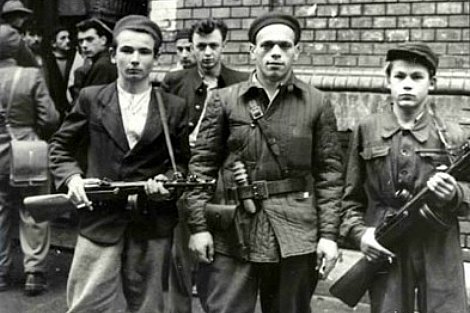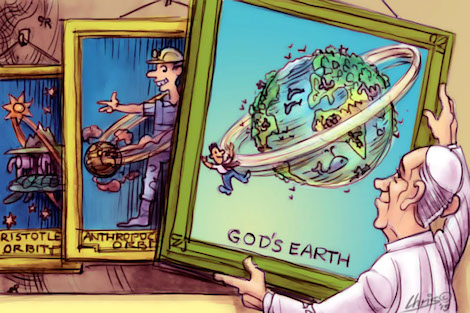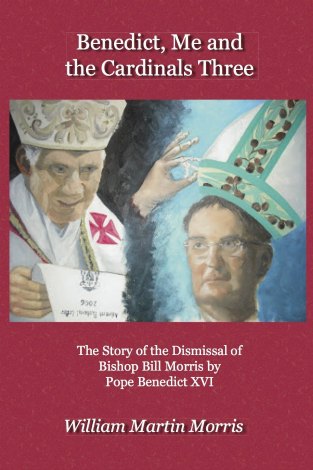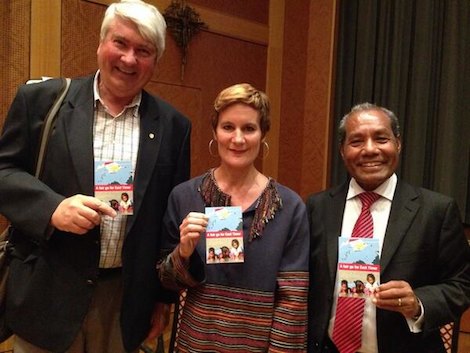Keywords: Catholic Natural Law
-

- Shannon and Kateena
- 12 June 2015
1 Comment
'In chapter 12 "Respecting Autonomy and Protecting the Vulnerability of the Dying", Frank quoted my grandmother ... "Well there is not much to say about euthanasia is there? Just don't kill people and look after them while they are dying. What more can you say?" Well Grandma, I am not certain that I share your view. Just as Pope Francis did not know all the answers at age 36 years, neither do I.' Frank Brennan's nieces Shannon and Kateena help launch his new book Amplifying That Still, Small Voice.
READ MORE
-

- Paul Bongiorno
- 09 June 2015
9 Comments
'In discussing Australia's asylum seeker policies Frank laments the government's deaf ear to calls from the churches, his own included, for a greater measure of compassion and a better way of dealing with the issue of boat people. Frank wryly comments: 'If only the Abbott Government with its disproportionate number of Jesuit alumni cabinet ministers could listen.' Paul Bongiorno launches Fr Frank Brennan SJ's book Amplifying That Still, Small Voice at the Australian Centre for Christianity and Culture, Canberra, 8 June 2015.
READ MORE
-

AUSTRALIA
- Gerry O'Hanlon
- 27 May 2015
56 Comments
Archbishop Martin voted no in the gay marriage referendum. But after the result, he says the Church needs ‘a reality check across the board’, and that means more than a new language. When Church teaching is invoked to bar women from office, to forbid contraception and condemn homosexual relations as intrinsically disordered in a way that conflicts with the ‘sense of the faithful’ of so many of the baptised, then the Church, despite the many wise things it has to say, loses credibility.
READ MORE 
-

AUSTRALIA
- Andrew Hamilton
- 26 February 2015
41 Comments
I fear for those Muslim young people driven into the arms of ideological extremists so unnecessarily. I'm prompted to recall my school years, when Soviet troops were invading Hungary to put down the brief revolution. I wondered uneasily whether it was not perhaps my duty to go to Hungary to fight for freedom there. For an idealistic young man whose Catholicism was tightly intertwined with anti-communism, the thought was natural.
READ MORE 
-

RELIGION
- Paul Collins
- 20 January 2015
43 Comments
Pope Francis has been hailed for his ‘rattling’ and ‘upsetting’ Catholic climate change sceptics and politicians. His predecessors John Paul II and Benedict XVI were ahead of most politicians on the issue, but essentially they underestimated the magnitude and urgency of the environmental problems we face. It is likely that Francis will make a decisive effort to confront climate change during 2015.
READ MORE 
-

AUSTRALIA
- Benedict Coleridge
- 24 October 2014
7 Comments
The repeal of the burka ban in parliament followed woeful comments from ignorant senators and an obvious lack of real government consultation with Australia’s Muslim communities, spotlighted an embarrassing level of illiteracy with regard to Islam. We need to move beyond a token religious ‘tolerance’ that is paired with incomprehension of the religious other, towards promoting a more engaged understanding that entails some comprehension of how religious and other cultural traditions fit together.
READ MORE 
-

AUSTRALIA
- Frank Brennan
- 22 September 2014
5 Comments
Considering my indebtedness to the two Aborigines who met [my family's ship arriving in Hervey Bay from Ireland] 151 years ago, I owe it to all my fellow Australians to agitate these issues of law, morality and politics here in Ireland so that back in Australia, the homeland which, in my religious tradition, was known as the Great South Land of the Holy Spirit.
READ MORE
-

AUSTRALIA
- Frank Brennan
- 23 July 2014
1 Comment
'Undoubtedly there are many challenges confronting our elected leaders in dealing with violent crime and with pathological sex offenders. But long-term sustainable solutions must be based on respect for judicial independence and for the role of the legal profession.' Frank Brennan addresses the Queensland Council for Civil Liberties at The Irish Club, 175 Elizabeth St, Brisbane 8 July 2014.
READ MORE
-

RELIGION
- Frank Brennan
- 24 June 2014
53 Comments
'My one new insight from reading Bill's book is that he was sacked because he was too much a team player with his local church ... the Romans hoped to shatter the morale and direction of those who had planned the pastoral strategies of a country diocese stretched to the limits as a Eucharistic community soon to be deprived of priests in the Roman mould.' Frank Brennan launches Benedict, Me and the Cardinals Three by Bishop William Morris.
READ MORE
-

AUSTRALIA
- Frank Brennan
- 21 May 2014
10 Comments
In 2006 Australia and Timor Leste hastily signed the Treaty on Certain Maritime Arrangements in the Timor Sea (CMATS) at a time of considerable political instability in Timor. After last year's revelation of evidence of Australian spying on the Timorese during the negotiation of CMATS, the Timorese decided to challenge its validity, and in March this year they had a spectacular win in the International Court of Justice that caused great embarrassment to Australia.
READ MORE 
-

AUSTRALIA
- Frank Brennan
- 11 April 2014
1 Comment
'Whether or not we have a bill of rights, much of our human rights jurisprudence remains partial, failing to extend rights equally to all. Once we investigate much of the contemporary discussion about human rights, we find that often the intended recipients of rights do not include all human beings but only those with certain capacities or those who share sufficient common attributes with the decision makers. It is always at the edges that there is real work for human rights discourse to do.' Frank Brennan's Blackfriars Lecture
READ MORE
-

AUSTRALIA
- Frank Brennan
- 16 December 2013
30 Comments
Until now, there was some doubt whether the Parliament's constitutional power to make laws with respect to marriage would be broad enough to include laws with respect to same sex marriage. The High Court has put this matter beyond doubt with all six sitting judges affirming that 'marriage' for the purposes of defining the constitutional power of the Parliament could not be confined to marriage in the traditional Christian sense.
READ MORE